-
84 results in Exploration of NeuroscienceSort byMost Viewed
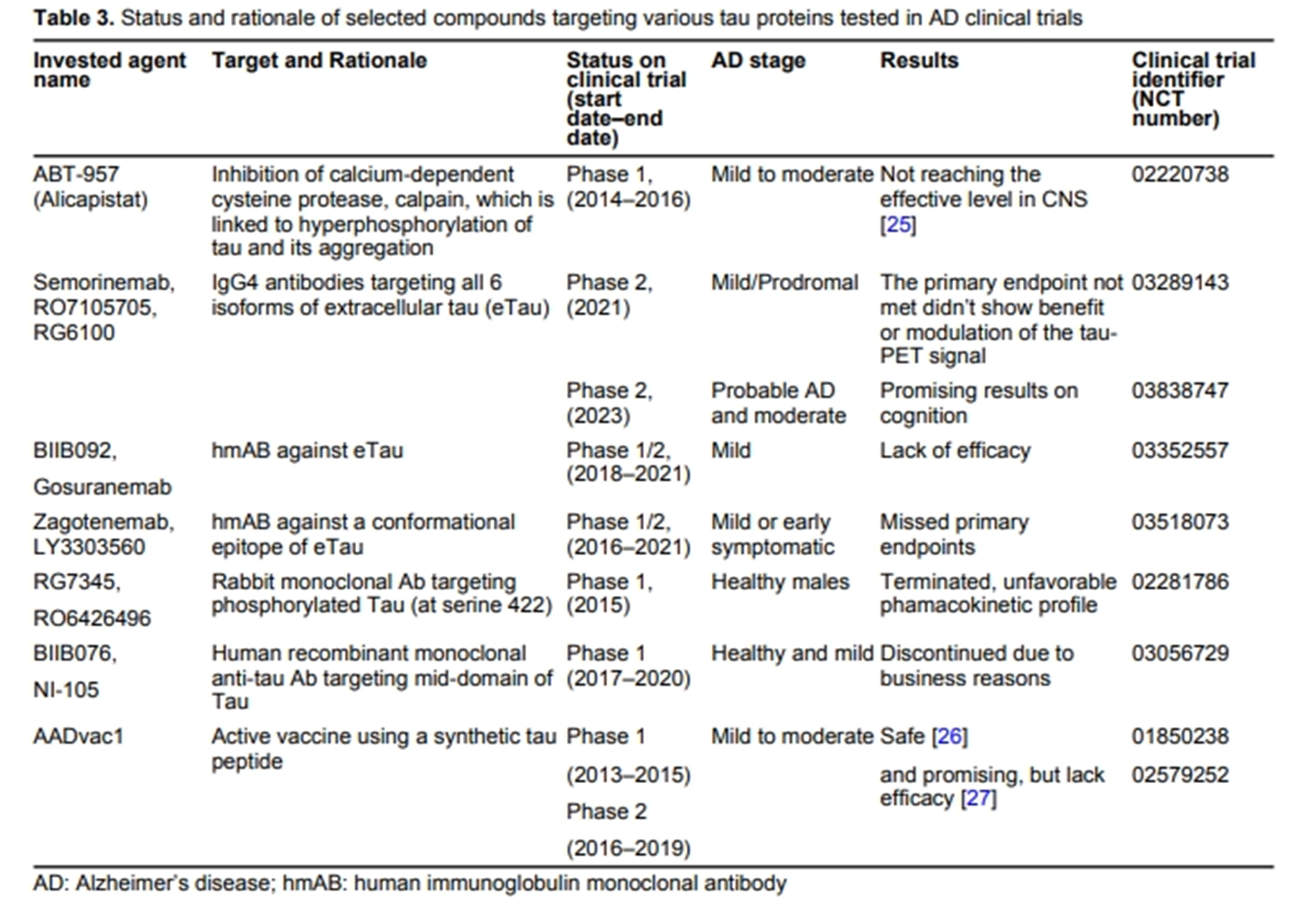 Current therapeutics for Alzheimer’s disease and clinical trialsOpen AccessReviewAlzheimer’s disease (AD) is a major type of dementia and neurodegenerative disease, characterized by memory loss and cognitive decline. Over decades, significant efforts have been dedicated to fin [...] Read more.Danqing Xiao, Chen ZhangPublished: June 27, 2024 Explor Neurosci. 2024;3:255–271
Current therapeutics for Alzheimer’s disease and clinical trialsOpen AccessReviewAlzheimer’s disease (AD) is a major type of dementia and neurodegenerative disease, characterized by memory loss and cognitive decline. Over decades, significant efforts have been dedicated to fin [...] Read more.Danqing Xiao, Chen ZhangPublished: June 27, 2024 Explor Neurosci. 2024;3:255–271
DOI: https://doi.org/10.37349/en.2024.00048
This article belongs to the special issue Alzheimer’s Disease Negative environmental influences on the developing brain mediated by epigenetic modificationsOpen AccessReviewBrain development, a complex process, consisting of several phases, starting as early as two weeks after conception, and continuing through childhood till early adolescence, is crucial for the devel [...] Read more.Maya Komar-Fletcher ... Joanna Michalina JurekPublished: September 28, 2023 Explor Neurosci. 2023;2:193–211
Negative environmental influences on the developing brain mediated by epigenetic modificationsOpen AccessReviewBrain development, a complex process, consisting of several phases, starting as early as two weeks after conception, and continuing through childhood till early adolescence, is crucial for the devel [...] Read more.Maya Komar-Fletcher ... Joanna Michalina JurekPublished: September 28, 2023 Explor Neurosci. 2023;2:193–211
DOI: https://doi.org/10.37349/en.2023.00021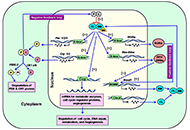 Impact of circadian clock dysfunction on human healthOpen AccessReviewAll living organisms exhibit circadian rhythms. Humans show circadian rhythm of the different physiological functions such as sleep-wake cycle, core body temperature, feeding behavior, metabolic act [...] Read more.Saptadip Samanta, Sk Asif AliPublished: September 29, 2022 Explor Neurosci. 2022;1:4–30
Impact of circadian clock dysfunction on human healthOpen AccessReviewAll living organisms exhibit circadian rhythms. Humans show circadian rhythm of the different physiological functions such as sleep-wake cycle, core body temperature, feeding behavior, metabolic act [...] Read more.Saptadip Samanta, Sk Asif AliPublished: September 29, 2022 Explor Neurosci. 2022;1:4–30
DOI: https://doi.org/10.37349/en.2022.00002
This article belongs to the special issue Circadian Rhythm and Melatonin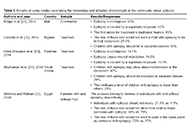 Stigma and psychosocial problems in patients with epilepsyOpen AccessReviewEpilepsy, a prevalent neurological disorder, is characterized by chronic seizures resulting from abnormal electrical activity in the brain. Adequate medical treatment allows roughly 70% of patients [...] Read more.Kubra YeniPublished: December 06, 2023 Explor Neurosci. 2023;2:251–263
Stigma and psychosocial problems in patients with epilepsyOpen AccessReviewEpilepsy, a prevalent neurological disorder, is characterized by chronic seizures resulting from abnormal electrical activity in the brain. Adequate medical treatment allows roughly 70% of patients [...] Read more.Kubra YeniPublished: December 06, 2023 Explor Neurosci. 2023;2:251–263
DOI: https://doi.org/10.37349/en.2023.00026
This article belongs to the special issue Epilepsy Update for astrocytomas: medical and surgical management considerationsOpen AccessReviewAstrocytomas include a wide range of tumors with unique mutations and varying grades of malignancy. These tumors all originate from the astrocyte, a star-shaped glial cell that plays a major role in [...] Read more.Matthew Willman ... Brandon Lucke-WoldPublished: February 23, 2023 Explor Neurosci. 2023;2:1–26
Update for astrocytomas: medical and surgical management considerationsOpen AccessReviewAstrocytomas include a wide range of tumors with unique mutations and varying grades of malignancy. These tumors all originate from the astrocyte, a star-shaped glial cell that plays a major role in [...] Read more.Matthew Willman ... Brandon Lucke-WoldPublished: February 23, 2023 Explor Neurosci. 2023;2:1–26
DOI: https://doi.org/10.37349/en.2023.00009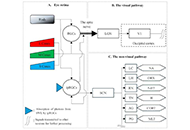 Effects mediated by melatonin and cortisol of artificial light and noise, alone and in combination, on sleep and healthOpen AccessReviewAs an integral part of human chronobiology, the circadian system plays a crucial role in regulating key biological functions, including sleep and the intricate hormonal rhythms of melatonin (MLT) an [...] Read more.Nahum M. GabinetPublished: September 13, 2024 Explor Neurosci. 2024;3:382–417
Effects mediated by melatonin and cortisol of artificial light and noise, alone and in combination, on sleep and healthOpen AccessReviewAs an integral part of human chronobiology, the circadian system plays a crucial role in regulating key biological functions, including sleep and the intricate hormonal rhythms of melatonin (MLT) an [...] Read more.Nahum M. GabinetPublished: September 13, 2024 Explor Neurosci. 2024;3:382–417
DOI: https://doi.org/10.37349/en.2024.00057
This article belongs to the special issue Circadian Rhythm and Melatonin Neuroprotective compounds from three common medicinal plants of West Bengal, India: a mini reviewOpen AccessMini ReviewNeural disorders refer to conditions of the nervous system due to infection or degeneration of the neurons leading to either neurodegenerative disorder or neuropsychiatric disorder. Some such disord [...] Read more.Suvendu Ghosh ... Debosree GhoshPublished: December 26, 2023 Explor Neurosci. 2023;2:307–317
Neuroprotective compounds from three common medicinal plants of West Bengal, India: a mini reviewOpen AccessMini ReviewNeural disorders refer to conditions of the nervous system due to infection or degeneration of the neurons leading to either neurodegenerative disorder or neuropsychiatric disorder. Some such disord [...] Read more.Suvendu Ghosh ... Debosree GhoshPublished: December 26, 2023 Explor Neurosci. 2023;2:307–317
DOI: https://doi.org/10.37349/en.2023.00030
This article belongs to the special issue Medicinal Plants and Bioactive Phytochemicals in Neuroprotection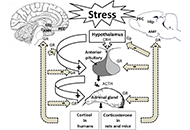 Cellular and molecular mechanisms of stress-induced memory impairmentOpen AccessReviewExposure to stressful conditions plays a critical role in brain processes, including neural plasticity, synaptic transmission, and cognitive functions. Since memory-related brain regions, the hippocampus (Hip), the amygdala, and t [...] Read more.Ameneh Rezayof ... Shiva HashemizadehPublished: December 30, 2022 Explor Neurosci. 2022;1:100–119
Cellular and molecular mechanisms of stress-induced memory impairmentOpen AccessReviewExposure to stressful conditions plays a critical role in brain processes, including neural plasticity, synaptic transmission, and cognitive functions. Since memory-related brain regions, the hippocampus (Hip), the amygdala, and t [...] Read more.Ameneh Rezayof ... Shiva HashemizadehPublished: December 30, 2022 Explor Neurosci. 2022;1:100–119
DOI: https://doi.org/10.37349/en.2022.00008
This article belongs to the special issue Neuroinflammation in the Ageing and the Injured Brain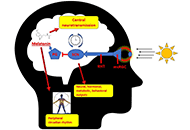 Neuropharmacologic modulation of the melatonergic systemOpen AccessReviewThe circadian rhythm is a critical system that governs an organism’s functions in alignment with the light-dark cycle. Melatonin release from the pineal gland plays a crucial role in regulating th [...] Read more.Utku Aykan ... Canan UluogluPublished: December 22, 2023 Explor Neurosci. 2023;2:287–306
Neuropharmacologic modulation of the melatonergic systemOpen AccessReviewThe circadian rhythm is a critical system that governs an organism’s functions in alignment with the light-dark cycle. Melatonin release from the pineal gland plays a crucial role in regulating th [...] Read more.Utku Aykan ... Canan UluogluPublished: December 22, 2023 Explor Neurosci. 2023;2:287–306
DOI: https://doi.org/10.37349/en.2023.00029
This article belongs to the special issue Circadian Rhythm and Melatonin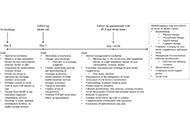 Updates in mechanical thrombectomyOpen AccessReviewStroke is a leading cause of morbidity and mortality. The advent of mechanical thrombectomy has largely improved patient outcomes. This article reviews the features and outcomes associated with aspi [...] Read more.Kevin Pierre ... Brandon Lucke-WoldPublished: December 30, 2022 Explor Neurosci. 2022;1:83–99
Updates in mechanical thrombectomyOpen AccessReviewStroke is a leading cause of morbidity and mortality. The advent of mechanical thrombectomy has largely improved patient outcomes. This article reviews the features and outcomes associated with aspi [...] Read more.Kevin Pierre ... Brandon Lucke-WoldPublished: December 30, 2022 Explor Neurosci. 2022;1:83–99
DOI: https://doi.org/10.37349/en.2022.00007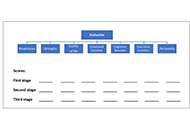 Psychology of bipolar depression: revisiting past and present researches, prospects ahead, and moving toward future directionsOpen AccessReviewBipolar disorder (BD) is a debilitating psychiatric disorder characterized by recurrent depression, mania, and hypomania episodes. The interaction of psychological, neuropsychological, and neurobiol [...] Read more.Behrooz AfshariPublished: December 29, 2023 Explor Neurosci. 2023;2:331–349
Psychology of bipolar depression: revisiting past and present researches, prospects ahead, and moving toward future directionsOpen AccessReviewBipolar disorder (BD) is a debilitating psychiatric disorder characterized by recurrent depression, mania, and hypomania episodes. The interaction of psychological, neuropsychological, and neurobiol [...] Read more.Behrooz AfshariPublished: December 29, 2023 Explor Neurosci. 2023;2:331–349
DOI: https://doi.org/10.37349/en.2023.00032
This article belongs to the special issue Novel Therapeutic Approaches for the Treatment of Depression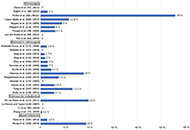 Current advances in epilepsy among patients with arteriovenous malformationsOpen AccessReviewEpileptic seizures are prevalent in people with brain vascular abnormalities like arteriovenous malformations (AVMs) and cavernous malformations, greatly affecting their quality of life. The connect [...] Read more.Joham Choque-Velasquez ... Alder Fernando Valenzuela-RangelPublished: May 13, 2024 Explor Neurosci. 2024;3:175–197
Current advances in epilepsy among patients with arteriovenous malformationsOpen AccessReviewEpileptic seizures are prevalent in people with brain vascular abnormalities like arteriovenous malformations (AVMs) and cavernous malformations, greatly affecting their quality of life. The connect [...] Read more.Joham Choque-Velasquez ... Alder Fernando Valenzuela-RangelPublished: May 13, 2024 Explor Neurosci. 2024;3:175–197
DOI: https://doi.org/10.37349/en.2024.00043
This article belongs to the special issue Epilepsy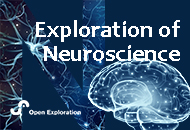 Nutritional treatment with the ketogenic diet in children with refractory epilepsy: a narrative reviewOpen AccessMini ReviewThe two mainstays of therapy for refractory epilepsy are medication and surgery. Child behavioral and cognitive aspects of epilepsy can be improved by using a specialized dietary regimen such as the [...] Read more.Srilaxmi Vityala ... Swathi NenavathPublished: October 30, 2023 Explor Neurosci. 2023;2:245–250
Nutritional treatment with the ketogenic diet in children with refractory epilepsy: a narrative reviewOpen AccessMini ReviewThe two mainstays of therapy for refractory epilepsy are medication and surgery. Child behavioral and cognitive aspects of epilepsy can be improved by using a specialized dietary regimen such as the [...] Read more.Srilaxmi Vityala ... Swathi NenavathPublished: October 30, 2023 Explor Neurosci. 2023;2:245–250
DOI: https://doi.org/10.37349/en.2023.00025
This article belongs to the special issue Epilepsy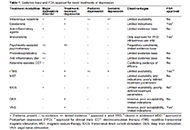 Novel treatments of depression: bridging the gap in current therapeutic approachesOpen AccessReviewDepression poses a significant global health burden, yet current therapeutic approaches focusing on monoaminergic neurotransmission often fall short of achieving full remission and managing acute ep [...] Read more.Amit JagtianiPublished: July 09, 2024 Explor Neurosci. 2024;3:272–286
Novel treatments of depression: bridging the gap in current therapeutic approachesOpen AccessReviewDepression poses a significant global health burden, yet current therapeutic approaches focusing on monoaminergic neurotransmission often fall short of achieving full remission and managing acute ep [...] Read more.Amit JagtianiPublished: July 09, 2024 Explor Neurosci. 2024;3:272–286
DOI: https://doi.org/10.37349/en.2024.00049
This article belongs to the special issue Novel Therapeutic Approaches for the Treatment of Depression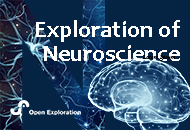 Recent developments and future perspectives of neuropathologyOpen AccessPerspectiveThis brief statement describes some recent achievements of neuropathological research, with the focus on Alzheimer’s and other age-related diseases, neurodegenerative disorders (tauopathies, synucleinopathies), multimorbidity of [...] Read more.Kurt A. JellingerPublished: September 30, 2022 Explor Neurosci. 2022;1:54–60
Recent developments and future perspectives of neuropathologyOpen AccessPerspectiveThis brief statement describes some recent achievements of neuropathological research, with the focus on Alzheimer’s and other age-related diseases, neurodegenerative disorders (tauopathies, synucleinopathies), multimorbidity of [...] Read more.Kurt A. JellingerPublished: September 30, 2022 Explor Neurosci. 2022;1:54–60
DOI: https://doi.org/10.37349/en.2022.00004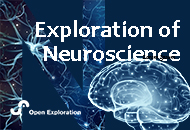 Metabolic correction of neurodegenerative pathologies: the role of macronutrients and timingOpen AccessReviewDespite decades of intensive research, effective treatment and prevention strategies for neurodegenerative diseases (NDDs) remain elusive. This review focuses on Alzheimer’s and Parkinson’s dise [...] Read more.Yuri Zilberter, Tanya ZilberterPublished: April 21, 2023 Explor Neurosci. 2023;2:67–81
Metabolic correction of neurodegenerative pathologies: the role of macronutrients and timingOpen AccessReviewDespite decades of intensive research, effective treatment and prevention strategies for neurodegenerative diseases (NDDs) remain elusive. This review focuses on Alzheimer’s and Parkinson’s dise [...] Read more.Yuri Zilberter, Tanya ZilberterPublished: April 21, 2023 Explor Neurosci. 2023;2:67–81
DOI: https://doi.org/10.37349/en.2023.00013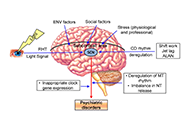 An intricate relationship between circadian rhythm dysfunction and psychiatric diseasesOpen AccessReviewThere is a complex relationship between circadian rhythm dysfunctions and various psychiatric disorders. Circadian (~24 h) rhythms indicate the rhythmic change of different physiological activities [...] Read more.Saptadip Samanta, Debasis BagchiPublished: August 23, 2024 Explor Neurosci. 2024;3:321–351
An intricate relationship between circadian rhythm dysfunction and psychiatric diseasesOpen AccessReviewThere is a complex relationship between circadian rhythm dysfunctions and various psychiatric disorders. Circadian (~24 h) rhythms indicate the rhythmic change of different physiological activities [...] Read more.Saptadip Samanta, Debasis BagchiPublished: August 23, 2024 Explor Neurosci. 2024;3:321–351
DOI: https://doi.org/10.37349/en.2024.00053
This article belongs to the special issue Circadian Rhythm and Melatonin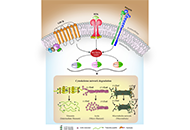 Connecting the ends: signaling via receptor tyrosine kinases and cytoskeletal degradation in neurodegenerationOpen AccessReviewReceptor tyrosine kinases (RTKs) are known to perform versatile roles in disease landscapes, which determine the fate of the cell. Although much has been discussed from the perspective of proliferat [...] Read more.Priyanka Sengupta ... Debashis MukhopadhyayPublished: February 20, 2024 Explor Neurosci. 2024;3:1–26
Connecting the ends: signaling via receptor tyrosine kinases and cytoskeletal degradation in neurodegenerationOpen AccessReviewReceptor tyrosine kinases (RTKs) are known to perform versatile roles in disease landscapes, which determine the fate of the cell. Although much has been discussed from the perspective of proliferat [...] Read more.Priyanka Sengupta ... Debashis MukhopadhyayPublished: February 20, 2024 Explor Neurosci. 2024;3:1–26
DOI: https://doi.org/10.37349/en.2024.00033
This article belongs to the special issue Alzheimer’s Disease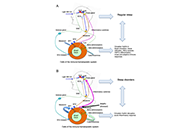 Circadian regulation of the immune-hematopoietic systemOpen AccessReviewEarth’s rotation generates the basic circadian rhythm of day and night to which all living organisms must adapt to survive. In mammals, this happens thanks to a central clock located in the suprac [...] Read more.Georges MaestroniPublished: June 30, 2023 Explor Neurosci. 2023;2:123–139
Circadian regulation of the immune-hematopoietic systemOpen AccessReviewEarth’s rotation generates the basic circadian rhythm of day and night to which all living organisms must adapt to survive. In mammals, this happens thanks to a central clock located in the suprac [...] Read more.Georges MaestroniPublished: June 30, 2023 Explor Neurosci. 2023;2:123–139
DOI: https://doi.org/10.37349/en.2023.00017
This article belongs to the special issue Circadian Rhythm and Melatonin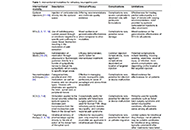 Interventional procedures for refractory neuropathic painOpen AccessReviewNeuropathic pain is an increasingly common disease affecting millions of individuals worldwide. Refractory pain poses a significant impact on patients’ quality of life, financial and economic stab [...] Read more.Hannah G. Matejowsky ... Alan D. KayePublished: December 22, 2023 Explor Neurosci. 2023;2:276–286
Interventional procedures for refractory neuropathic painOpen AccessReviewNeuropathic pain is an increasingly common disease affecting millions of individuals worldwide. Refractory pain poses a significant impact on patients’ quality of life, financial and economic stab [...] Read more.Hannah G. Matejowsky ... Alan D. KayePublished: December 22, 2023 Explor Neurosci. 2023;2:276–286
DOI: https://doi.org/10.37349/en.2023.00028
This article belongs to the special issue Neuropathic Pain -
